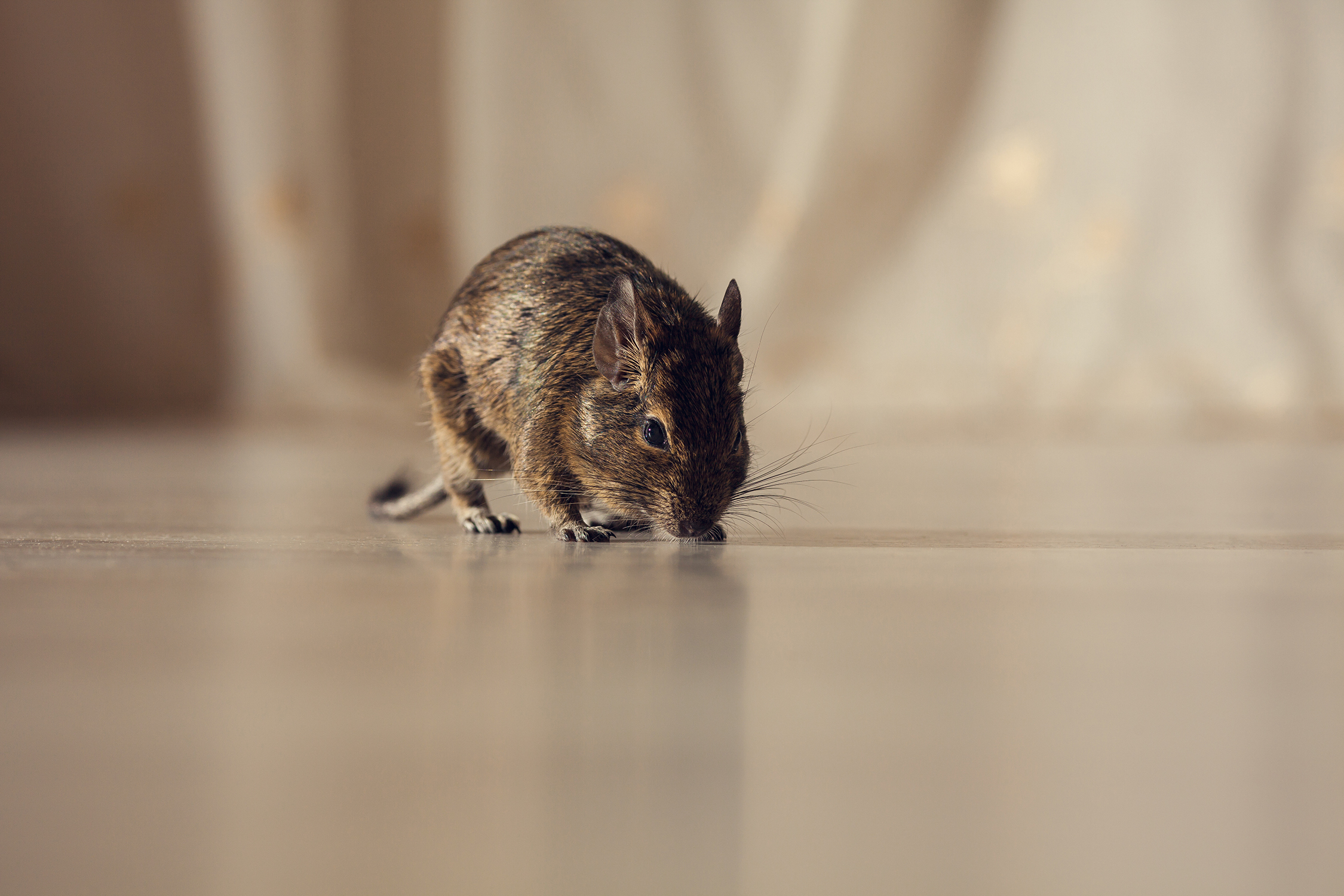We need to remove the hedge between our and our neighbour’s house as it is causing subsidence. We value our privacy so want to replace it with a hedge we can grow in a planter. We want year-round cover at least 6-8ft high. Any advice? Oriana
For a smart and traditional look, yew, spaced 50cm apart, creates a tight-knit boundary that’ll thrive in sun and shade. For sun and more colour, silver-leaved olive trees planted one metre apart will clip into a shaggier divide that may even produce fruit. Both are evergreen, and have the ability to bounce back if neglected or hard pruned.
As for the pots, you could line up a series of ones 40cm high and wide to create a “cheat’s hedge”. Or, for a tighter screen, plant into a bespoke metal or wooden trough with holes for drainage in the base. Steel lasts longer, but should be lined with bubble wrap before planting to protect roots from the frosted or sun-soaked steel.
Use soil-based compost to fill the container; once the hedge is established, use a hand fork to tickle away the top 5cm of earth, replacing with a handful of controlled-release fertiliser mixed in. Install automatic irrigation to reduce the amount of time spent watering. Toby Buckland, garden writer, hosts a radio show on BBC Radio Devon/BBC Sounds on Sunday from 10am
● I HAVEN’T PAID MY GAS BILL FOR 25 YEARSWe moved into a new-build house in 1995. I contacted British Gas, which at the time was the only gas company. When my husband retired in 2004 he discovered that we were not paying for gas. Since then we have tried (through phone calls and letters) to get British Gas to send us a bill, to no avail. They claim we are not on the National Grid and therefore are not using gas. It’s a problem many cash-strapped people would like to have, but will it catch up with us when we sell the house? Or leave our kids in debt? What should we do? Jane
A company somewhere is providing gas to your home, and may realise their mistake and send a bill. If the bill is not paid, the energy company would be legally entitled to make a claim to the civil courts to recuperate the amount, which may incur legal costs for you. Generally there is a limitation period of six years on bringing civil legal proceedings. Also, Ofgem has implemented “back-billing” rules, which state that a consumer cannot be charged for gas used more than 12 months ago if they have not been correctly billed. These may not apply if the consumer has behaved obstructively, such as blocking meter readings at their property.
Contact the suppliers again to see if errors have been made. Otherwise, the risk is that you or your children may potentially be left with a hefty bill down the line.David Newman, legal adviser, DAS UK, das.co.uk
A If the gas company denies liability, get that in writing and don’t pay. If they later say funds are due, use that written statement to say that nothing is due, as the statement was relied upon. If you are really concerned, you could just save a fixed amount per month in case a demand arrives.Danielle Lewis-James, solicitor, Slater and Gordon, slatergordon.co.uk
● HOW DO I STOP MY DOOR FROM CREAKING?I am trying very hard to get rid of the creaky noise when I open my front door. I have used lots of 3-in-One oil and WD-40, but to no avail. What to do? AH Routledge, Oxford
If the problem is rusty hinges, remove the door and hinges and lubricate them. WD-40 is not ideal as a long-term lubricant for hinges. Use lithium grease, which is less runny than WD-40 or 3-in-One, will last longer and avoid attracting dirt. Both the brands 3-in-One and WD-40 make a white lithium grease. Support the door, remove the hinge pin (remove its caps and locking pins, and lift with needle-nose pliers, or tap the pin from underneath with a pin-removing tool or a hammer and small nail). Remove the door and prop it up. Remove the hinge plates from the door and jamb (by hand) and lay them on newspaper. Wipe away grease and dirt from all parts with a rag, and clean rust with wire wool. Apply an even coat of lithium grease to the pins and hinge plates. Refix the plates and rehang the door.
A quicker but less thorough solution is to remove the pins and clean and lubricate them without removing hinge plates. But if hinges are rusty or worn, it’s time to replace.
If fixing the hinges does not solve the problem, the squeak could be the door rubbing on the frame — the solution here is to ease the door. You might do this by adjusting the hinges slightly (adjust screws or pack out the hinges) to balance the space between the door and frame. But if either the door or the frame has distorted over time you will need to identify where the door is catching and rub it down with sandpaper. You may be able to reduce the door in situ, but if not you will need to mark up the problem, remove the door, adjust and replace until the door stops catching. Allow for priming and repainting the door.Michael Holmes, property expert, the Homebuilding & Renovating Show, homebuildingshow.co.uk
● MY HOUSE IS NOT ON THE LAND REGISTRYNearly 40 years ago my husband and I bought our house in the Chilterns. It is now worth over £1 million. The house has never been registered with the Land Registry. I have the actual deeds in a safe. We have no intention of selling at the moment (my husband, sadly, is in the last stages of life and I have power of attorney over his affairs). I am told it is quite expensive to register the house, but would I be advised to do so? And if so, why?Name withheld
I am very sorry to hear about your husband. It is not absolutely necessary to submit a first registration at Land Registry at this stage, but doing so may help a future sale. The sale of your home will trigger compulsory first registration at Land Registry. As Land Registry is currently taking many months to process a first registration application, that might frustrate a buyer and it may be quicker selling as unregistered. But unregistered land transactions are becoming fewer as the years pass. Younger solicitors may not be as familiar with the process; your solicitor and the buyer’s solicitor will need to be familiar with unregistered land matters. If you submit a first registration application now, the solicitors’ fees will depend on the complexity of the title. If the title is simple then the cost should not be prohibitive, but if it is complicated or paperwork is missing then that can increase costs due to time spent rectifying issues. You should ask your solicitor to provide a cost estimate.
As for your physical title deeds, keep them in a safe place — consider asking your solicitor to store them in a fireproof unit/safe on your behalf and to provide you with copies, which will assist with a future first registration or sale if the deeds get lost or destroyed.Donall Murphy, partner, Russell-Cooke solicitors, russell-cooke.co.uk
● OVEN LIGHTBULB STUCKI have a Britannia range cooker and am faced with having to replace both oven lightbulbs, neither of which are now working. The instructions advise you to unscrew the bulb cover and thereafter the bulbs, and they are easy to replace. Problem is that after ten years of constant use the covers appear to be solid with oven grease and despite trying soap and water, oven cleaner, and brute strength, I cannot get the covers to unscrew. Any suggestions?George Aitken
If you can’t get a grip on the covers due to grease, the oven cleaner likely hasn’t been used correctly — they break down and dissolve grease. It’s best to start with an oven cleaner like Mr Muscle or HG; my choice would be Oven Brite. Please wear gloves and eye protection when applying the product to the inside of the oven, paying extra attention to the bulb covers. Leave for an hour or the recommended time on the instructions. I would use Oven Brite and leave it on for four hours. Some products need the oven to be heated after application so be sure to check the instructions for that as well. When this is wiped off, it will remove most, of if not all, of the grease — I’d suggest you roll a towel at the foot of the oven to prevent the residue marking your floor in case any leaks out.Edward Jonkler, director, Remora Cleaning, remoracleaning.com

Mice have chewed through plastic sheeting and plastic storage boxes, how can I stop them?Judy Bunn, Surrey
We have an old house in France. When we went back each spring mice had eaten everything (soap, candles, cables) and made a nest in our duvet. I read that mint deterred them. As the garden was overrun with mint, I gave it a try. The next spring there was not a mouse to be seen. I have not seen one for five years now. We still put mint stalks under units, especially the sink and food cupboards.Jennie A’Court
I got fed up with mice chewing up items in the attic, so I mouse-proofed it. I boarded the floor with hardboard then used expanding foam filler (about £5 a tin) around every edge and corner where the board met the walls. Result: no mice.Carolynn Thompson, Rugby
Metal storage containers may be the answer. Also, consider using humane or baited traps to catch them. Cotton wool balls soaked in peppermint oil [take care if you have pets] work as a repellent, too.Julie O’Reilly, Congleton
Buy sturdy see-through plastic boxes with clip-on lids at DIY stores. Mice can’t chew through thick plastic.Yasmine, Anglesey
Short of using metal trunks, it’s impossible to protect items from mice. And if mice are in the attic, they will be in the house. Call the experts.Mary Russell, Suffolk
Your reader who wanted to deter magpies might find it easier to live with them. I put bird seed out at one side of the garden and fat pellets and kitchen scraps at the other side. The magpies aren’t interested in the seed, and so smaller birds have no competition.Elizabeth Clarke
The way I solved the magpie problem was by putting my bird food in an unused small dog cage. The smaller birds can get through the cage walls, but not the magpies; even they can’t open the rather stiff door catches. And it has the advantage that you can slide the bottom tray out to clean it occasionally. Works a treat and we now get all the small birds back into our garden.Chris Emptage, York
My magpie pairs loved the dried worms I used to put out. Nowadays I only serve up sunflower seed hearts, and never see a magpie.Jon Langham
How can I make bread last longer?
Send tips and questions to [email protected]
Advice given without responsibility
● Last week we ran a tip from a reader who said one way to keep bins clean was to tip leftover food down the loo. In response, several readers wrote in explaining why this is a bad idea, summed up best by Kathie Simpson from Sidmouth: “Never scrape leftovers from plates down the loo. This is how sewers become blocked and fatbergs are formed. Water authorities and the Environment Agency recommends only ‘pee, paper and poo down the loo’.”
